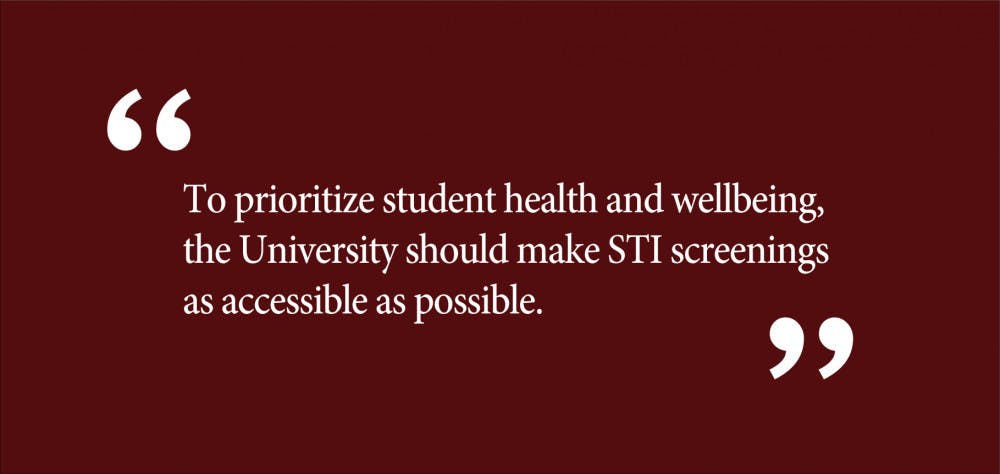At the start of the semester, I visited Health Services for my annual screen for sexually transmitted infections. Before going to the lab, my doctor asked me to call my insurance provider to make sure Lifespan labs — where Health Services sends patients’ bloodwork and other samples — was “in-network,” and to make sure they covered STI screenings. Apparently, some private insurance plans don’t cover STI tests unless the patient has symptoms. If my insurance didn’t cover an STI screen, I was told tests were pricey, about $100 each. In addition, I was told that since I’m on my parents’ insurance plan, the screening might show up on my parents’ statement. Luckily, my family has comprehensive health care that covers regular STI screenings, and I could text my mom a heads-up that an STI test might show up on the insurance statement, which was mildly awkward, but not a big deal. But many students are not as fortunate and may not get tested as a result. The University can and should address this issue by providing free STI testing for students whose insurance won’t pay, and for students who cannot use their family insurance for STI tests without serious repercussions.
Though some private insurance companies will not cover STI screenings if patients do not exhibit symptoms, many STIs can be asymptomatic but still contagious and, if left untreated, can lead to serious complications including infertility. Thus, the Centers for Disease Control and Prevention recommends that women under 25 be tested for chlamydia and gonorrhea once a year, and that gay, bisexual and other men who have sex with men be tested for syphilis, chlamydia and gonorrhea once a year on top of regular HIV tests. Clearly, the way insurance handles STIs doesn’t match how STIs actually spread, according to CDC guidance. Until health insurance catches up to reality, the University can and should fill this critical gap.
Brown students already pay a $443 Health Services fee every semester. At peer schools like Dartmouth, Cornell and Harvard, the health fee is used to make STI testing free for all students. Other schools, like Princeton, heavily subsidize STI testing for students with private insurance; chlamydia and gonorrhea tests cost $9.50 each. At Yale, students receive free STI tests regardless of whether they pay an optional specialty care fee. Yet, while Health Services does offer free HIV tests and subsidizes safer sex supplies, other STI tests are not covered under the health services fee, leaving some students without access to crucial STI screening.
Some may worry that including STI screenings will necessarily increase the health services fee for all students. But peer institutions that do cover STI screenings with the student health fee do not necessarily have higher fees. The student health fee is $91 per quarter at Dartmouth, $185 per semester at Cornell and $589 per semester at Harvard. Total student fees are $465 per semester at Princeton. Furthermore, if the University encourages students who can use private health insurance to pay for STI screening to do so, this would partially defray the cost of STI tests incurred by the University.
In the end, access to regular STI screenings is a crucial part of maintaining sexual health. By age 25, one in two sexually active people will get an STI. But, while people aged 15 to 24 account for nearly 10 million STI cases every year, only 12 percent of this age group got tested in the last year. In Rhode Island specifically, newly diagnosed cases of chlamydia, gonorrhea and syphilis have increased sharply in the past 10 years, hitting a 10-year high in 2017. To prioritize student health and wellbeing, the University should make STI screenings as accessible as possible.
Rebecca Aman ’20 can be reached at rebecca_aman@brown.edu. Please send responses to this opinion to letters@browndailyherald.com and op-eds to opinions@browndailyherald.com.





